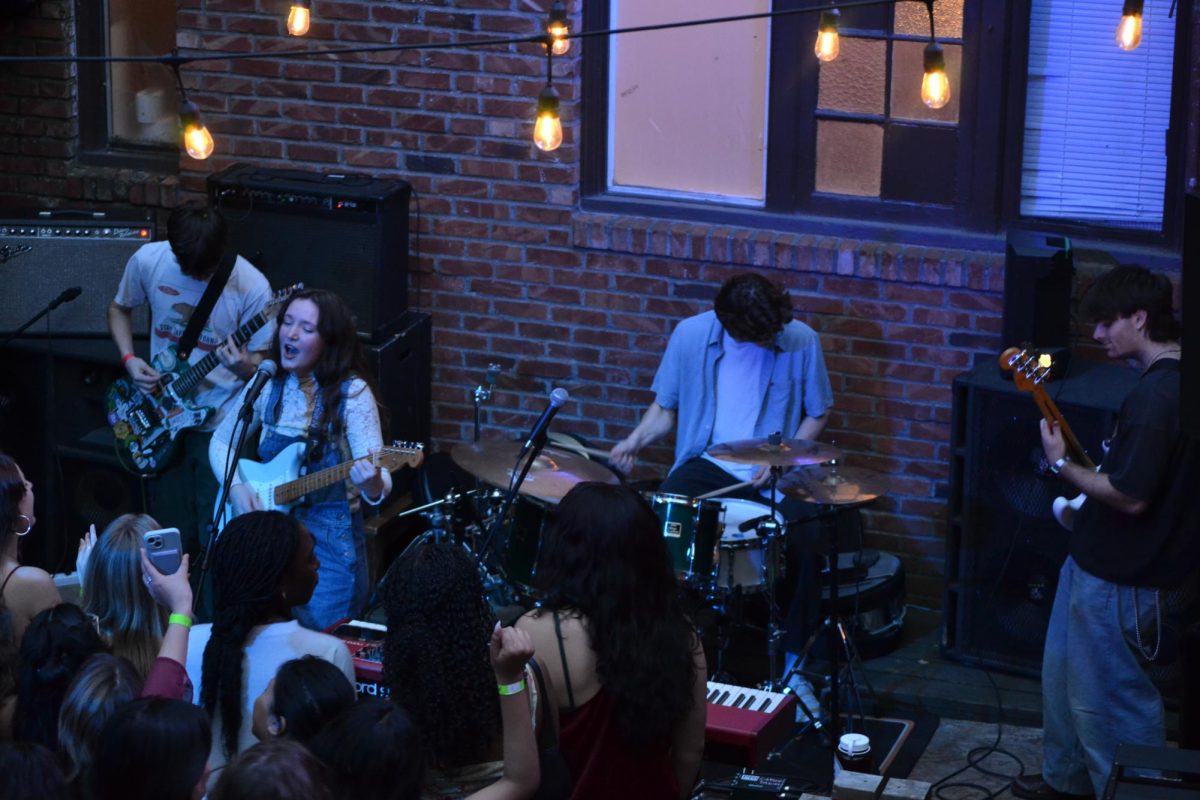Emma Daughters explains her passion for her studies despite workload
A few days before the start of Thanksgiving break, Emma Daughters sits in Weter Hall during a break between her classes.
Daughters, a music therapy major in her junior year, does not get many breaks. However, she has spent years preparing for the unique challenges and busy lifestyle that come with her chosen major.
“When I was a kid, I started playing drums and guitar and I just got into all kinds of different musical instruments. I was so passionate about it that I really felt that I was called to do something in music,” Daughters said.
Daughters, however, did not want to follow the path to be a performer.
Rather than specializing in one instrument, Daughters felt that she was better suited to learn multiple instruments at a more basic level. In addition to her musical abilities, Daughters felt like she possessed the skill of empathy and she wanted to incorporate that into her work.
As Daughters went through high school, she started to get more serious about deciding on a career. After doing research, she stumbled upon music therapy.
“I always felt like music was therapeutic, but I didn’t realize that it was a real profession that was evidence based,” Daughters said.
She began researching case studies and read a multitude of articles in peer review journals. Later, Daughters found a non-profit music therapy organization to volunteer with. During her first session, Daughters watched a music therapist and physical therapist work together to help older adults with Parkinson’s.
“To just see the huge difference from people walking into that session full of anxiety and closed in and by the end of that session people were dancing together and singing the same songs,” Daughters said. “Just seeing people light up in that way made me think ‘this would be super fulfilling to be a part of.’”
For Daughters and other music therapy students, the path ahead is not easy.
Daughters has six different classes this quarter, and drives 20 minutes on Fridays to Lynnwood where she works with an actual music therapy organization.
Music students often take anywhere from 18 to 20 credits a quarter, as their choir classes allow them to go over the credit limit. Rather than taking a few five-credit classes, Daughters said they often take many three-credit and two-credit classes.
“It is a lot, but I wouldn’t be doing it if I wasn’t super passionate about it,” she said.
“I think a lot of music majors feel like that. If you don’t like what you are doing, you are going to change your major.”
Auditions for the music therapy major involve a mastery of at least three instruments.
According to Daughters, her first music therapy class had 40 students, but only 10 to 12 of those students were actually admitted to the major. Music classes are only part of the workload.
“We also have to have the psychology aspect of it and clinical things, so I have to take functional anatomy and plenty of people are like ‘why would you do that you are studying music’ but music therapy is so much more than just music,” Daughters said.
Daughters currently works with adults who have traumatic brain injuries.
Through singing and dancing, she is able to connect with patients. Although music involves a lot of creativity, it also engages the logical part of the brain that deals with things like language and matching pitch.
Daughters said that music therapy works because music is present all throughout the brain, allowing music to intervene where traditional therapy cannot.
Despite her knowledge and passion for the subject, Daughters still encounters setbacks in her work.
“Being a young woman, leading a group of adults who are primarily men is difficult,” Daughters said.
“I’m a college student explaining that I actually have something to offer and that I am actually studying in this area.”
While music therapy is a heavy burden, Daughters still finds joy in the things she does. Although she enjoys hobbies like knitting and thrifting, music still consumes most of her time.
Although, according to her, that isn’t a bad thing. “I think that everything that is required of me is necessary to be a professional in the music industry, and especially as a music therapist,” Daughters said.
“I am interested in everything I’m doing and I’m thankful for that.”
















































































